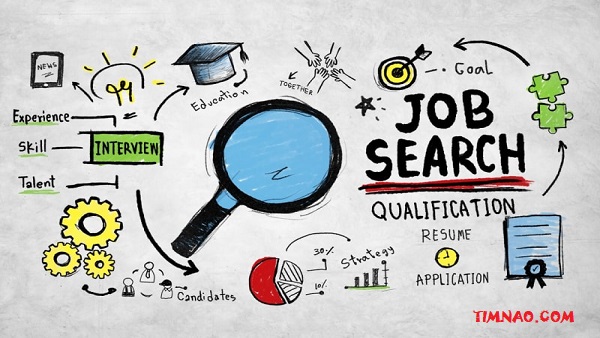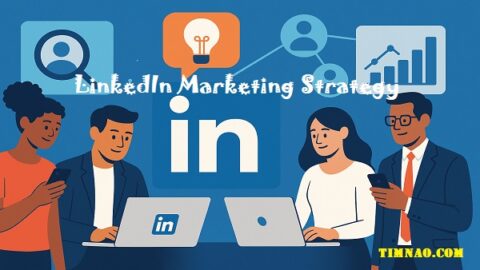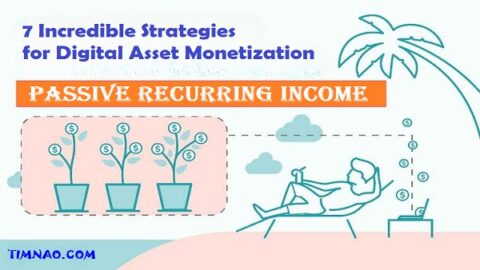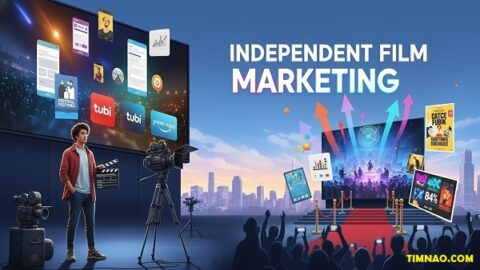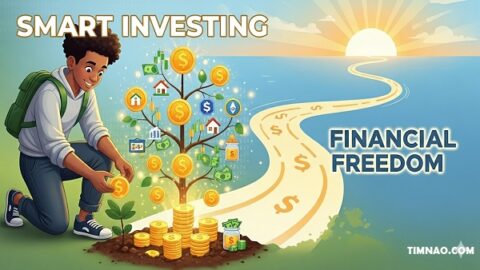🚀 Unlock Your Future: The Ultimate Power Guide to Nailing Your Job Search for Beginners!
Embarking on your job search for beginners can feel like setting sail into vast, uncharted waters. It’s an adventure filled with excitement, a touch of apprehension, and boundless opportunities. This guide is your trusty compass, designed to navigate you through every wave, from understanding your unique strengths to making a stellar impression in your new role. We’ll break down the entire process into manageable steps, transforming what might seem overwhelming into an empowering journey. Remember, landing a fantastic job isn’t just about luck; it’s about smart strategies, diligent preparation, and unwavering persistence. Let’s dive in and equip you with the knowledge to not just find a job, but to launch a fulfilling career.
📝 Table of Contents
- 🌟 I. Charting Your Course: Self-Discovery and Initial Career Development Plan
- 🤔 A. Understanding Yourself: The Launchpad for Your Job Search for Beginners
- 🗺️ B. Setting SMART Goals: Your Career Development Plan Roadmap
- 🔍 C. Researching Industries & Roles: Finding Your Niche
- 🛠️ II. Building Your Arsenal: Acquiring Essential Job Skills & Crafting Your Brand
- 📚 A. Identifying and Developing In-Demand Essential Job Skills
- ✨ B. Building Your Unique Personal Brand Online and Offline
- 📄 C. Resume Revolution: Crafting a Document That Gets Noticed
- 💌 D. The Art of the Cover Letter: Your Personal Introduction
- 🎯 III. The Hunt Begins: Effective Job Search Strategies for Beginners
- 🌐 A. Mastering Job Search Engines and Platforms
- 🤝 B. The Networking Advantage: Building Meaningful Connections
- 💼 C. Exploring the “Hidden” Job Market and Alternative Opportunities (Internships, Volunteering, Freelancing)
- 🤖 D. Navigating the AI-Powered Job Market: Tips for 2025 and Beyond
- 🎤 IV. Showtime: Nailing the Interview Process
- 📝 A. Pre-Interview Preparation: Research and Rehearsal
- 💻 B. Mastering Different Interview Formats (Phone, Video, In-Person)
- 💬 C. Answering Common (and Tricky) Interview Questions
- ❓ D. Asking Insightful Questions: Show Your Engagement
- ✉️ E. The Crucial Follow-Up: Making a Lasting Impression
- 🎉 V. Sealing the Deal & Starting Strong: Offers and Onboarding
- 🤔 A. Evaluating Job Offers: More Than Just Salary
- 💼 B. Salary Negotiation Basics for Beginners
- 🚀 C. Your First 90 Days: Making an Impact in Your New Role
- 🌱 VI. Continuous Growth: Your Lifelong Career Development Plan
- 📚 A. The Importance of Lifelong Learning and Upskilling
- 🔄 B. Adapting to Change and Future-Proofing Your Career
- 🏁 VII. Final Thoughts: Your Journey Starts Now
🌟 I. Charting Your Course: Self-Discovery and Initial Career Development Plan
Before you even type “jobs near me” into a search bar, the most crucial first step in your job search for beginners is looking inward. Understanding who you are, what you want, and what you can offer is the bedrock of a successful career. This phase is all about self-discovery and laying down the initial tracks for your career development plan.
🤔 A. Understanding Yourself: The Launchpad for Your Job Search for Beginners
Knowing yourself is the first secret to success. Think of this as your personal inventory check. What are your inherent interests? What activities make you lose track of time? These aren’t just hobbies; they can be powerful indicators of fulfilling career paths. Perhaps you love solving puzzles, which could translate to a knack for data analysis or software development. Or maybe you’re a natural storyteller, a skill valuable in marketing or journalism.
Next, take an honest look at your current skills. Divide them into two categories: hard skills and soft skills. Hard skills are teachable and often technical, like proficiency in a programming language (e.g., Python, Java), using specific software (like Adobe Creative Suite or Microsoft Excel), or foreign language fluency. Soft skills, often called interpersonal or people skills, include communication, teamwork, problem-solving, adaptability, and leadership. Recent studies show that employers in 2025 are increasingly valuing soft skills like emotional intelligence, creativity, and critical thinking, as these are harder for AI to replicate.
Don’t forget your values. What’s truly important to you in a work environment? Is it work-life balance, the opportunity for rapid advancement, a collaborative team culture, or the chance to make a significant impact? Aligning your job with your core values leads to greater satisfaction and longevity in your career. Tools like the Myers-Briggs Type Indicator (MBTI) or StrengthsFinder can offer structured insights, but even simple self-reflection can be incredibly revealing.
🗺️ B. Setting SMART Goals: Your Career Development Plan Roadmap
Once you have a better grasp of your internal landscape, it’s time to set some goals for your career development plan. Vague aspirations like “get a good job” aren’t very helpful. Instead, use the SMART framework: Specific, Measurable, Achievable, Relevant, and Time-bound. This method transforms fuzzy wishes into actionable targets.
For instance, a SMART goal could be: “To secure an entry-level marketing coordinator position in the tech industry (Specific) within the next six months (Time-bound) by applying to at least 15 relevant job postings per week and networking with 5 industry professionals monthly (Measurable). This aligns with my communications degree and passion for technology (Relevant), and is a realistic first step in my desired career path (Achievable).”
Break down your long-term career ambitions into smaller, short-term goals. If your dream is to become a project manager, a short-term goal might be to earn a certification like the Certified Associate in Project Management (CAPM) or gain experience leading a small volunteer project. These incremental wins will keep you motivated and build a tangible path towards your bigger picture. This structured approach is fundamental to a successful job search for beginners.
🔍 C. Researching Industries & Roles: Finding Your Niche
With your self-assessment and initial goals in hand, it’s time to explore the vast ocean of industries and job roles. Don’t limit yourself to what you already know. Research sectors that genuinely pique your interest. Look into their growth trends – for example, fields like renewable energy, artificial intelligence, data science, and healthcare are projected for significant growth through 2025 and beyond.
Understand the typical roles within these industries, especially entry-level positions. What does a “Junior Data Analyst” actually do day-to-day? What are the common career progression paths from that role? Websites like LinkedIn, Glassdoor, and the U.S. Bureau of Labor Statistics’ Occupational Outlook Handbook (OOH) are invaluable resources for this research. They provide insights into job responsibilities, salary expectations, required qualifications, and future outlook.
Pay attention to the essential job skills repeatedly mentioned in job descriptions for roles that interest you. This will help you identify any skill gaps you might need to address. For example, if many entry-level tech roles require basic Python knowledge, and you don’t have it, that’s a clear area for development in your career development plan. This research phase is critical for focusing your efforts and tailoring your applications effectively.
🛠️ II. Building Your Arsenal: Acquiring Essential Job Skills & Crafting Your Brand
Once you’ve mapped your course, the next stage in your job search for beginners is to gather your tools and prepare your vessel. This means actively developing essential job skills, building a compelling personal brand, and crafting application materials that make recruiters take notice.
📚 A. Identifying and Developing In-Demand Essential Job Skills
The job market is dynamic, with skill demands constantly evolving. For 2025 and beyond, a blend of technical (hard) and human-centric (soft) skills is paramount. Technical skills in high demand include data analysis, AI and machine learning literacy (including prompt engineering), software development (Python, Java, C++), cloud computing (AWS, Azure), cybersecurity, and digital marketing (SEO, content creation, social media management). Platforms like Coursera, edX, and Udemy offer a plethora of courses to build these skills.
However, don’t underestimate the power of soft skills. As AI takes over more routine tasks, uniquely human abilities become even more valuable. Critical thinking, complex problem-solving, creativity, emotional intelligence, communication, collaboration, and adaptability are consistently ranked as top essential job skills by employers. Actively seek opportunities to develop these: join a debate club, volunteer for a team project, take a public speaking course, or seek feedback on your communication style. Your ability to learn new skills quickly (learnability) is also a massive asset.
Your career development plan should include strategies for acquiring these skills. This might involve online courses, certifications (like Google Analytics certification or an IBM DevOps certificate), workshops, bootcamps, or even self-study projects. The key is to be proactive and demonstrate a commitment to continuous learning, a trait highly prized in any job search for beginners.
✨ B. Building Your Unique Personal Brand Online and Offline
In today’s crowded job market, your personal brand is your unique identifier. It’s the story you tell about yourself, your skills, and your value proposition. Start by auditing your current online presence – Google yourself! What comes up? Ensure your social media profiles, especially LinkedIn, are professional and consistently reflect the image you want to project. A professional photo, a compelling headline, and a well-crafted summary are non-negotiable.
Define your Unique Value Proposition (UVP). What makes you different? What specific problems can you solve, or what unique perspective do you bring? Perhaps you’re a recent graduate with a fresh perspective on sustainable practices, or you have a unique combination of creative flair and analytical thinking. Articulate this clearly.
Create and share content that showcases your expertise and interests. This doesn’t have to be a full-blown blog (though it can be!). Share relevant industry articles on LinkedIn with your own thoughtful commentary. Engage in discussions in professional groups. If you’ve worked on projects (even academic ones), showcase them online if possible – a personal website or a GitHub profile can be great for this. Consistency and authenticity are key to building a strong personal brand that resonates during your job search for beginners.
📄 C. Resume Revolution: Crafting a Document That Gets Noticed
Your resume is often the very first impression a potential employer will have of you. For a job search for beginners, it’s crucial to make it count. Forget generic, one-size-fits-all resumes. Each resume you send should be tailored to the specific job you’re applying for. This means carefully reading the job description and highlighting the skills and1 experiences that directly match the employer’s requirements.
Key components of an effective resume include:
- Contact Information: Clear, professional, and up-to-date. Include your LinkedIn profile URL.
- Professional Summary/Objective: A concise (3-4 lines) summary tailored to the job, highlighting your key qualifications, career goals (objective, for beginners), and enthusiasm. Incorporate keywords from the job description.
- Skills Section: List relevant hard and soft skills. Use keywords from the job description here too. For beginners, this section can be quite prominent.
- Experience Section: Detail internships, volunteer work, part-time jobs, and significant academic projects. Use action verbs (e.g., “Managed,” “Developed,” “Led,” “Implemented”) and quantify your achievements whenever possible (e.g., “Increased social media engagement by 25%”).
- Education Section: List your degrees, institutions, and graduation dates. Include relevant coursework, GPA (if strong), and academic honors.
- Optional Sections: Projects, Certifications, Awards, Publications, or Volunteer Experience can further enhance your profile if relevant.
Use a clean, professional, and easy-to-read format. Avoid fancy fonts or graphics that can be difficult for Applicant Tracking Systems (ATS) to parse. ATS are software programs that many companies use to scan resumes for keywords before a human ever sees them. Therefore, optimizing your resume with relevant keywords is crucial. Proofread meticulously for any typos or grammatical errors – these can create a negative impression instantly.
💌 D. The Art of the Cover Letter: Your Personal Introduction
While some debate its necessity, a well-crafted cover letter can significantly boost your chances, especially in a job search for beginners. It’s your opportunity to tell a story, show your personality, and explain why you’re a great fit for the role and the company, going beyond the bullet points of your resume. Like your resume, your cover letter must be tailored for each specific job application.
A strong cover letter typically includes:
- Your Contact Information & Date.
- Employer’s Contact Information (if known).
- Salutation: Address the hiring manager by name if possible (e.g., “Dear Ms. Smith,”). Avoid generic greetings like “To Whom It May Concern.” A little research on LinkedIn can often reveal the hiring manager’s name.
- Opening Paragraph: State the position you’re applying for and where you saw the advertisement. Immediately express your enthusiasm and briefly connect your main strength to the role’s primary requirement.
- Body Paragraphs (1-2): This is where you shine. Highlight 2-3 key skills or experiences from your resume and elaborate on how they align with the job requirements. Provide specific examples or brief anecdotes that demonstrate your abilities. Show that you’ve researched the company and explain why you’re genuinely interested in their mission or products.
- Closing Paragraph: Reiterate your enthusiasm and your belief that you’d be a valuable asset. State your availability for an interview.
- Professional Closing: “Sincerely,” or “Respectfully,” followed by your typed name.
Keep your cover letter concise (ideally one page), professional in tone, and error-free. Showcasing your essential job skills and how they meet the company’s needs is your main goal here.
🎯 III. The Hunt Begins: Effective Job Search Strategies for Beginners
With your foundational work done, it’s time to actively seek out opportunities. The modern job search for beginners involves a multi-faceted approach, leveraging online tools, personal connections, and an understanding of evolving market dynamics.
🌐 A. Mastering Job Search Engines and Platforms
Online job boards are a primary resource. Familiarize yourself with major platforms like Indeed, LinkedIn Jobs, Glassdoor, and niche sites specific to your industry (e.g., Dice for tech, Idealist for non-profit jobs). Create profiles and upload your tailored resume.
Use filters effectively to narrow your search by location, job type (full-time, part-time, internship, remote), experience level, and salary expectations. Set up job alerts for your preferred search criteria so you get notified about new, relevant postings. When applying, always customize your resume and cover letter for each role. Don’t just passively apply; many platforms also allow you to follow companies, which can give you insights into their culture and new openings.
Beyond general job boards, explore company career pages directly. If you have target companies in mind, regularly check their websites for openings, as some jobs might not be advertised elsewhere. Staying organized is key; use a spreadsheet to track your applications, interview dates, and follow-ups. This systematic approach will make your job search for beginners more manageable and effective.
🤝 B. The Networking Advantage: Building Meaningful Connections
Networking is often cited as one of the most effective job search strategies, and for good reason. A significant percentage of jobs are filled through referrals or connections before they are even publicly advertised. For a job search for beginners, networking isn’t about awkwardly asking strangers for a job; it’s about building genuine, mutually beneficial relationships.
Start with your existing network: family, friends, former classmates, professors, and past colleagues (even from part-time or volunteer roles). Let them know you’re job searching and what kind of roles you’re interested in. You’d be surprised how willing people are to help if they can.
Expand your network by:
- Attending Virtual and In-Person Industry Events: Conferences, webinars, workshops, and local meetups (when safe and appropriate) are great for meeting professionals in your field.
- Leveraging LinkedIn: Connect with alumni from your university, professionals in companies you admire, and people in roles you aspire to. Personalize your connection requests. Engage with their content by liking, commenting thoughtfully, or sharing.
- Joining Professional Associations and Online Communities: These offer valuable resources, discussion forums, and networking opportunities.
- Conducting Informational Interviews: Reach out to people working in your desired field or company and ask if they’d be willing to spare 15-20 minutes for a virtual coffee chat to share their experiences and advice. This is not a job interview, but a chance to learn and make a connection.
The golden rule of networking is to give as much as you take. Offer help, share relevant information, and be a good listener. Authentic connections are built on reciprocity and genuine interest.
💼 C. Exploring the “Hidden” Job Market and Alternative Opportunities (Internships, Volunteering, Freelancing)
Not all job openings are advertised on major job boards. This is often referred to as the “hidden job market.” Accessing it heavily relies on networking, direct approaches to companies you’re interested in (even if they don’t have current openings listed), and sometimes, a bit of luck.
For those undertaking a job search for beginners, gaining practical experience is paramount. Consider these avenues:
- Internships: These provide invaluable real-world experience, skill development, and networking opportunities. Many internships can lead to full-time job offers. Look for paid internships if possible, but even unpaid ones can be beneficial if they offer substantial learning.
- Volunteering: Offering your skills to a non-profit organization or community project can help you gain experience, build your portfolio, and expand your network. It also demonstrates initiative and a commitment to causes you care about.
- Freelancing/Gig Work: Platforms like Upwork or Fiverr allow you to take on short-term projects. This is a great way to build a portfolio, develop specific skills (like web design, writing, or social media marketing), and earn some income while job searching. It also showcases your entrepreneurial spirit.
- Personal Projects: If you’re a budding developer, build an app. If you’re a writer, start a blog. These projects demonstrate your passion and skills in a tangible way.
These alternative opportunities not only enhance your resume but also provide talking points for interviews and demonstrate your proactive approach to your career development plan.
🤖 D. Navigating the AI-Powered Job Market: Tips for 2025 and Beyond
Artificial Intelligence (AI) is rapidly transforming the job market. As a beginner, it’s important to understand its impact and how to navigate it. AI is used in recruitment for tasks like resume screening (ATS), candidate sourcing, and even initial chatbot interviews. On the other hand, AI tools (like ChatGPT or Grammarly) can also help you in your job search by assisting with resume writing, cover letter drafting, and interview preparation.
Here are some tips for the AI-powered job search:
- Keyword Optimization is Still Key: Ensure your resume and LinkedIn profile are rich with keywords relevant to the jobs you’re targeting to pass through ATS.
- Highlight Human Skills: Emphasize soft skills that AI cannot easily replicate: creativity, critical thinking, emotional intelligence, complex problem-solving, and leadership.
- Develop AI Literacy: Understanding basic AI concepts and how AI tools are used in your industry can be an advantage. For some roles, skills in using specific AI tools or “prompt engineering” (crafting effective inputs for generative AI) are becoming essential job skills.
- Be Authentic: While AI can assist, ensure your applications and interview responses reflect your genuine voice and experiences.
- Focus on Continuous Learning: The jobs of tomorrow will likely require working alongside AI. Show that you’re adaptable and willing to learn new technologies.
While some fear AI will lead to job displacement, the World Economic Forum also projects that AI will create new roles. The key is to be adaptable and focus on developing skills that complement AI rather than compete directly with it. This forward-thinking approach is vital for any job search for beginners in the current era.
🎤 IV. Showtime: Nailing the Interview Process
You’ve landed an interview – congratulations! This is your chance to make a personal connection and convince the employer you’re the right person for the job. Preparation is the key to transforming interview nerves into confident performance.
📝 A. Pre-Interview Preparation: Research and Rehearsal
Thorough preparation can make all the difference. Start by researching the company extensively. Understand their mission, values, products/services, recent news, and company culture. Look up your interviewers on LinkedIn to understand their roles and backgrounds. This knowledge will not only help you answer questions more effectively but also enable you to ask intelligent questions.
Review the job description again and align your skills and experiences with its requirements. Prepare specific examples from your past (internships, projects, coursework, volunteer work) that demonstrate your qualifications. Use the STAR method (Situation, Task, Action, Result) to structure your answers for behavioral questions (e.g., “Tell me about a time you faced a challenge”).
Practice common interview questions. You can do this with a friend, family member, career counselor, or even by recording yourself. Pay attention to your body language, tone of voice, and clarity of your answers. Prepare a few thoughtful questions to ask the interviewer at the end – this shows your engagement and genuine interest.
💻 B. Mastering Different Interview Formats (Phone, Video, In-Person)
Interviews can take various forms, each requiring a slightly different approach:
- Phone Interviews: Often a preliminary screening. Ensure you’re in a quiet place with good reception. Have your resume and notes in front of you. Smile while you talk – it can make your voice sound more engaging. Listen carefully and speak clearly.
- Video Interviews (e.g., Zoom, Microsoft Teams): These are now standard. Test your technology (camera, microphone, internet connection) beforehand. Choose a professional, well-lit, and clutter-free background. Dress professionally, just as you would for an in-person interview. Maintain eye contact by looking at the camera, not just the screen. Minimize distractions.
- In-Person Interviews: Plan your route and arrive 10-15 minutes early. Dress professionally and appropriately for the company culture. Bring extra copies of your resume, a notepad, and a pen. Offer a firm handshake (if culturally appropriate), maintain good eye contact, and use positive body language (sit upright, nod to show engagement).
Regardless of the format, professionalism, enthusiasm, and clear communication are vital components of your job search for beginners interview strategy.
💬 C. Answering Common (and Tricky) Interview Questions
Employers ask a variety of questions to assess your skills, experience, personality, and fit with the company culture. Some common questions include:
- “Tell me about yourself.” This is your elevator pitch. Focus on your relevant skills, experiences, and career aspirations as they relate to the job. Keep it concise (1-2 minutes).
- “Why are you interested in this role/company?” Show your genuine interest based on your research. Connect your skills and goals to the company’s mission and the specific role.
- “What are your strengths?” Choose strengths relevant to the job and provide specific examples of how you’ve used them.
- “What are your weaknesses?” Be honest but strategic. Choose a real weakness, but explain how you’re working to improve it. Avoid clichés like “I’m a perfectionist.”
- “Describe a time you failed/faced a challenge.” Use the STAR method. Focus on what you learned and how you grew from the experience.
- “Where do you see yourself in 5 years?” Show ambition but also realism. Connect your goals to the opportunities for growth within the company.
- “Why should we hire you?” This is your chance to summarize your unique selling points. Confidently articulate how your skills, experience, and enthusiasm make you the best candidate.
For behavioral questions, always try to provide specific examples. Quantify your achievements whenever possible. Honesty, conciseness, and relevance are your best friends when answering interview questions.
❓ D. Asking Insightful Questions: Show Your Engagement
At the end of most interviews, you’ll be asked, “Do you have any questions for us?” Always have a few prepared. Asking thoughtful questions demonstrates your genuine interest, engagement, and that you’ve done your research. It’s also an opportunity for you to assess if the company and role are a good fit for you.
Good questions to ask could include:
- “What does a typical day or week look like in this role?”
- “How does this role contribute to the team’s and company’s overall goals?”
- “What are the biggest opportunities and challenges facing the team/company right now?”
- “What does success look like in this position during the first 6-12 months?”
- “Can you describe the team culture?”
- “What are the opportunities for professional development and growth within the company?”
Avoid asking questions about salary or benefits in the initial interview unless the interviewer brings it up. Save those for later stages. Your goal here is to learn more and show your proactive interest.
✉️ E. The Crucial Follow-Up: Making a Lasting Impression
The interview isn’t over when you walk out the door or end the video call. A prompt and professional follow-up is a crucial step that many candidates overlook. Within 24 hours of your interview, send a personalized thank-you email (or handwritten note, if appropriate for the company culture) to each person who interviewed you.
Your follow-up email should:
- Thank the interviewer for their time and the opportunity.
- Reiterate your interest in the position and the company.
- Briefly mention something specific you discussed that resonated with you or a key qualification you want to re-emphasize.
- If you forgot to mention something important during the interview, you can briefly include it here.
- Express your eagerness to hear about the next steps.
Keep it concise, professional, and error-free. This simple gesture can reinforce your candidacy and leave a positive final impression, which is invaluable in a competitive job search for beginners.
🎉 V. Sealing the Deal & Starting Strong: Offers and Onboarding
You’ve navigated the applications and interviews, and now the exciting part: job offers! But the process isn’t quite over. Evaluating offers and preparing for your new role are key final steps.
🤔 A. Evaluating Job Offers: More Than Just Salary
When you receive a job offer (or multiple offers), take a deep breath and don’t feel pressured to accept immediately. It’s perfectly acceptable to ask for a reasonable amount of time (e.g., 24-48 hours, or until an agreed-upon deadline) to consider it.
Evaluate the offer holistically, not just based on the salary. Consider:
- The Role Itself: Do the responsibilities align with your skills and career goals? Will you find the work engaging and challenging?
- Company Culture: Did you get a good vibe during the interviews? Does the company’s culture (e.g., collaborative, fast-paced, formal) fit your work style and values? Research on Glassdoor can provide employee reviews.
- Compensation Package: This includes base salary, potential bonuses, stock options (if applicable), and benefits (health insurance, retirement plan, paid time off, parental leave, etc.).
- Growth Opportunities: Does the company offer opportunities for learning, development, and career advancement? Is there a clear path for progression?
- Work-Life Balance: What are the typical working hours? Does the company support flexible work arrangements if that’s important to you?
- Commute/Location: If it’s an in-person role, is the commute manageable? If it’s remote, does the company have a strong remote work culture?
Compare the offer against your priorities and career goals you defined in your career development plan. Sometimes, a slightly lower salary at a company with excellent growth opportunities and a great culture might be a better long-term choice than a higher-paying job with limited prospects.
💼 B. Salary Negotiation Basics for Beginners
Salary negotiation can be intimidating, especially for a job search for beginners, but it’s a standard part of the hiring process. If the initial offer is lower than your researched expectations or what you feel you deserve, you can attempt to negotiate.
Here are some basic tips:
- Do Your Research: Before negotiating, research typical salary ranges for similar roles in your location and industry, considering your experience level. Websites like Salary.com, Payscale, and Glassdoor can provide this data.
- Know Your Worth: Based on your skills, experience (including internships and projects), and the value you can bring, determine your desired salary range.
- Express Enthusiasm: When you receive the offer, first express your gratitude and excitement about the opportunity.
- State Your Case Clearly and Professionally: If you decide to negotiate, you might say something like, “Thank you so much for the offer; I’m very excited about the possibility of joining your team. Based on my research for similar roles in [City/Region] and considering my [specific skills/experience relevant to the job], I was expecting a salary closer to [Your Desired Range]. Is there any flexibility on the compensation?”
- Focus on Your Value: Emphasize how your skills and contributions will benefit the company.
- Be Prepared for a “No”: The company may not be able to meet your request. Decide beforehand what your walk-away point is.
- Consider Negotiating Benefits: If the salary is firm, you might be able to negotiate other aspects like a signing bonus (less common for entry-level), professional development budget, or an extra week of vacation.
- Get it in Writing: Once you reach an agreement, ensure you receive an updated offer letter with all the terms clearly stated.
Negotiation is a skill that improves with practice. Approach it professionally and respectfully.
🚀 C. Your First 90 Days: Making an Impact in Your New Role
Congratulations, you’ve accepted an offer! Your job search for beginners has led to a new beginning. The first 90 days in a new job are often considered a probationary period and are crucial for setting the tone for your success.
Focus on these areas:
- Learn Voraciously: Absorb as much information as you can about the company, your role, the team, processes, and tools. Don’t be afraid to ask questions.
- Build Relationships: Get to know your colleagues, your manager, and key stakeholders. Understand their roles and how you can work together effectively.
- Understand Expectations: Clarify your manager’s expectations for your role and performance. Set some initial goals with their guidance.
- Show Initiative (Appropriately): Look for small ways to contribute and add value early on. Volunteer for tasks that align with your skills.
- Be Proactive and Professional: Arrive on time (or log in on time for remote roles), meet deadlines, communicate effectively, and maintain a positive attitude.
- Seek Feedback: Regularly ask your manager and trusted colleagues for feedback on your performance. This shows you’re committed to improvement.
Your first few months are about proving your capabilities, integrating into the team, and demonstrating that the company made the right decision in hiring you. This is where your career development plan starts to unfold in a real-world setting.
🌱 VI. Continuous Growth: Your Lifelong Career Development Plan
Landing your first job is a significant milestone, but it’s just the beginning of your professional journey. The world of work is constantly changing, and a commitment to lifelong learning and adaptability is essential for long-term career success.
📚 A. The Importance of Lifelong Learning and Upskilling
The skills that got you your first job might not be enough to secure your next promotion or navigate future career transitions. Technology evolves, industries shift, and new roles emerge. Embracing lifelong learning is no longer optional; it’s a necessity. This means continuously seeking opportunities to update your existing essential job skills and acquire new ones (upskilling and reskilling).
Strategies for lifelong learning include:
- Taking Online Courses and Certifications: Platforms like Coursera, edX, LinkedIn Learning, and industry-specific training providers offer endless opportunities.
- Attending Workshops and Conferences: Stay updated on the latest trends and network with peers.
- Reading Industry Publications and Books: Keep your knowledge current.
- Seeking Mentorship: A mentor can provide guidance and support throughout your career.
- On-the-Job Learning: Volunteer for new projects, take on challenging assignments, and learn from your colleagues.
Make learning a regular part of your career development plan. Set aside time and resources for it. This commitment will not only make you more valuable to your current employer but also prepare you for future opportunities.
🔄 B. Adapting to Change and Future-Proofing Your Career
The only constant in the modern workplace is change. Economic shifts, technological advancements (like AI), and evolving business models require professionals to be adaptable and resilient. Future-proofing your career involves anticipating these changes and proactively preparing for them.
Key aspects of future-proofing include:
- Developing a Growth Mindset: Believe that your abilities can be developed through dedication and hard work. Embrace challenges and view failures2 as learning opportunities.
- Cultivating Transferable Skills: Focus on skills like critical thinking, problem-solving, communication, creativity, and leadership, which are valuable across various roles and industries.
- Building a Strong Professional Network: Your network can provide support, insights, and opportunities during times of transition.
- Staying Agile: Be open to new roles, industries, or even career changes if necessary. Your initial career development plan might evolve over time, and that’s okay.
- Understanding Technological Trends: Keep an eye on how technologies like AI, automation, and data analytics are impacting your field and identify skills that will complement these changes.
By being proactive, adaptable, and committed to growth, you can navigate the uncertainties of the future job market and build a sustainable and fulfilling career.
🏁 VII. Final Thoughts: Your Journey Starts Now
Your job search for beginners is more than just a series of tasks; it’s a journey of self-discovery, skill-building, and strategic action. It requires patience, resilience, and a proactive mindset. The path might have its twists and turns, but with the right preparation and a commitment to your career development plan, you have the power to unlock a future filled with opportunity and achievement.
Remember the essential job skills you’ve cultivated, the strength of your personal brand, and the value you bring. Every application, every interview, and every networking conversation is a learning experience. Embrace the process, stay positive, and believe in your potential. The perfect role for you is out there, waiting to be found. Now, go out there and make it happen!
Reference video:

